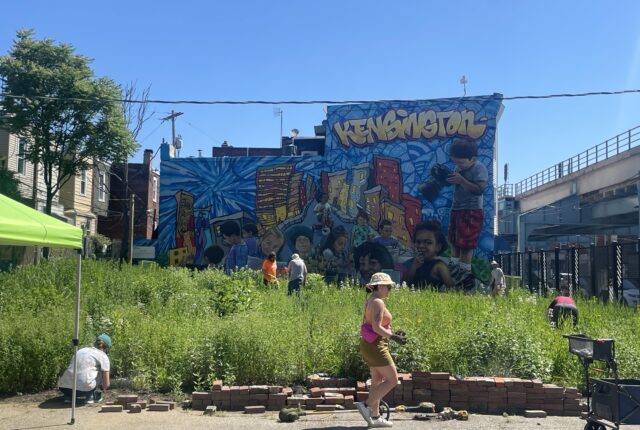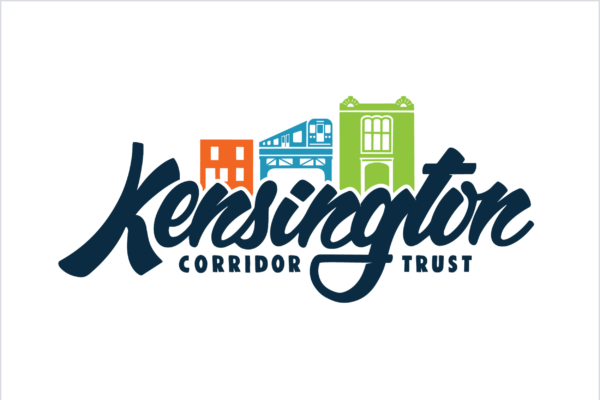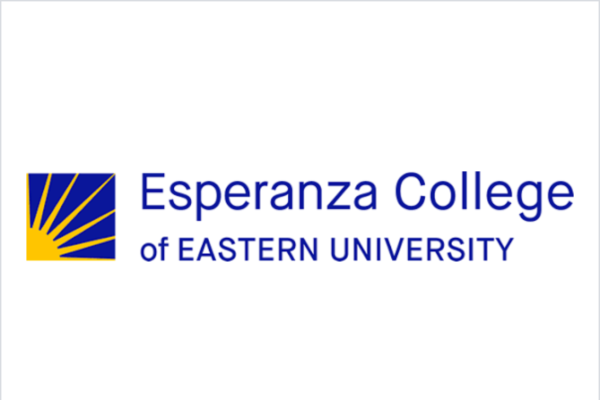
North Philadelphia
Background
North Philadelphia is a diverse neighborhood, including long-time residents and newcomers from around the world, including the largest Hispanic population in the city. While North Philadelphia faces challenges, including economic disparities, high rates of drug addiction, and a large unhoused population, it is also a hub of resilience and grassroots initiatives. Community organizations, churches, and local businesses work together to support residents and revitalize the area.
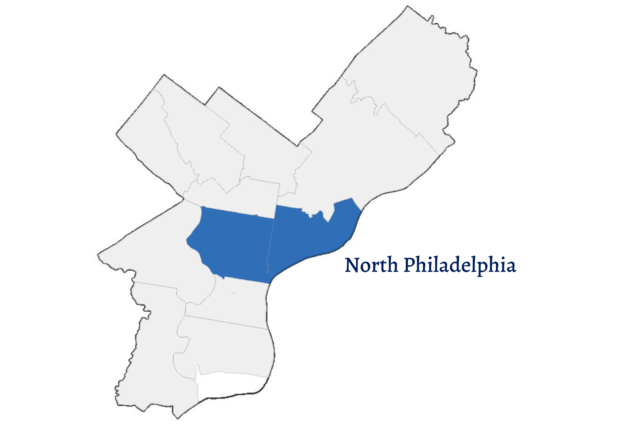
Hazard Profile
At one time, Philadelphia had 36 lead smelters — more than any other city in America. Fourteen of them operated in North Philadelphia. These smelters left legacy lead pollution that is still affecting the community today. In the Hunting Park neighborhood, over 10% of tested children have elevated lead levels, the highest rate in the city.
North Philadelphia is one of the poorest neighborhoods in Philadelphia with a poverty rate of 44% and a neighborhood with a high heat vulnerability index. Due to an excess of concrete surfaces and lack of green space, North Philadelphia can experience summer temperatures that are at least 10°F higher due to the urban heat island effect. These temperature increases can put residents at higher risk of heat related illness. Community organizations are working to combat these effects with greening projects throughout the neighborhood.
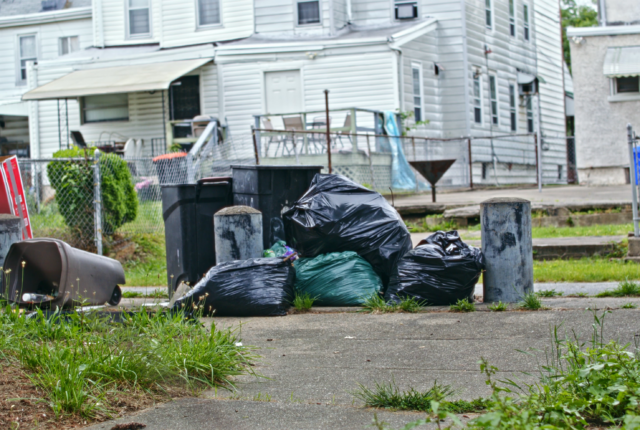
CEC Activities
The CEC is working with the Kensington Corridor Trust (KCT), a community organization whose mission is to improve the economics, health and safety of the neighborhood, and the Esperanza College of Eastern University, a college program dedicated to the service of the Hispanic and local communities.
Air Quality Curriculum for High School Students
The CEC collaborated with Interpret Green, a local non-profit, to develop an air quality program for the STEM ambassadors at Imhotep Institute Charter High School, a high school in North Philadelphia offering an African-centered education that emphasizes STEM subjects. The CEC developed and implemented a curriculum that included lectures on sources and health effects of air pollution, environmental justice, air monitoring and interpreting data, and climate change. We installed an outdoor and indoor air monitor at the school that recorded continuous data viewable in real time on an online dashboard. We used this data to engage the students around excursions of air pollution around their school.
Students were given portable air monitors to record data on school sponsored educational and service trips to Ghana and Sapelo Island, Georgia. Before each trip, CEC provided lessons on air quality in Ghana and Sapelo Island, Georgia, and designed a strategy for the students to perform air monitoring there. On their return, we analyzed the data together with the students using their photos and written information to explain data findings. View the curriculum here.

Climate Change Listening Sessions
Through the Kensington Corridor Trust, we have engaged the community in listening sessions on climate change and its impact. We have learned that greening is important to the community to both heat management and well-being. Residents are concerned about the fire risk and the smoke from fires that the unhoused use to stay warm. These fires may contain chemicals emitted from items burned. There are many abandoned lots in the neighborhood that could be cleaned up and greened. The CEC is engaged with the Philadelphia Horticultural Society to explore cleaning and greening options for the neighborhood. On June 1, 2024, we hosted a lead soil testing event at the KCT Community Garden. We engaged with community members on environmental health issues and provided free soil testing and guidance on how to mitigate exposure to lead through soil.
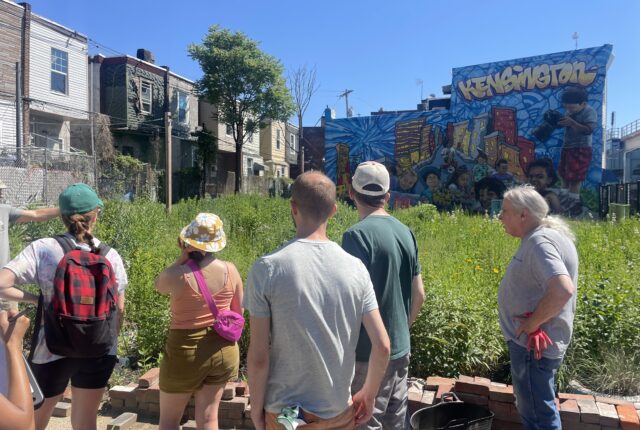
Esperanza College of Eastern University
The CEC is currently working with the Esperanza College of Eastern University to expand their programs to contain more environmental health education. The College recently hosted CEC Director, Dr. Marilyn Howarth, as part of their “Health Career Series.” Dr. Howarth presented careers in environmental public health as well as environmental and occupational medicine. The CEC also tabled at their Spring Health Fair. We engaged with attendees on topics of environmental health, including lead exposure, air pollution, and climate change.
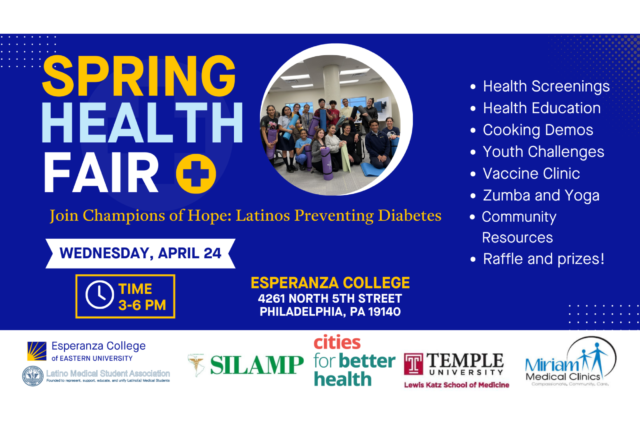
Our Partnerships in North Philadelphia
CEC Resources
Explore our resources to find helpful information and programs relevant to the North Philadelphia community. View our Community Resources page to view all our resources.

Lead Safe Certification of Rental Housing
Testimony Testimony to Philadelphia City Council on March 17, 2019 on their Lead Safe Certification of Rental Housing bill.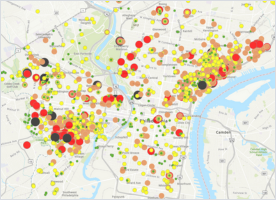
Lead Soil Map
GIS Map View our resources on lead, including our lead soil map with over 3,900 soil samples representing 86% of census tracts in Philadelphia.
How to Collect Soil Samples for Lead Testing
Document Written instructions on how to collect soil samples for lead testing.
Lead: It’s Still a Problem (English & Spanish)
Brochure Information on lead, the health effects of lead poisoning, and ways to reduce exposure.
Effects of Lead on Children’s Health
Infographic Infographic on the effects of lead on children’s health.
Is Your Water Pipe Made of Lead?
Infographic Step-by-step guide on how to check if you have lead pipes and ways to reduce exposure to lead through drinking water.
Mandatory Lead Certification for all Philadelphia Contractors
Policy brief Policy brief for establishing a bill in Philadelphia to require all contractors to receive lead safe certification.
Indoor Air Pollution (English & Spanish)
BROCHURE Information on sources of indoor air pollution in the home and how to reduce health effects from indoor air pollution.
Children and Outdoor Pollution (English & Spanish)
BROCHURE Information on outdoor pollution and the potential health outcomes for asthmatic children.Get Involved
Do you live or work in this community and would like to get involved with our work? Please contact us!
Contact Us